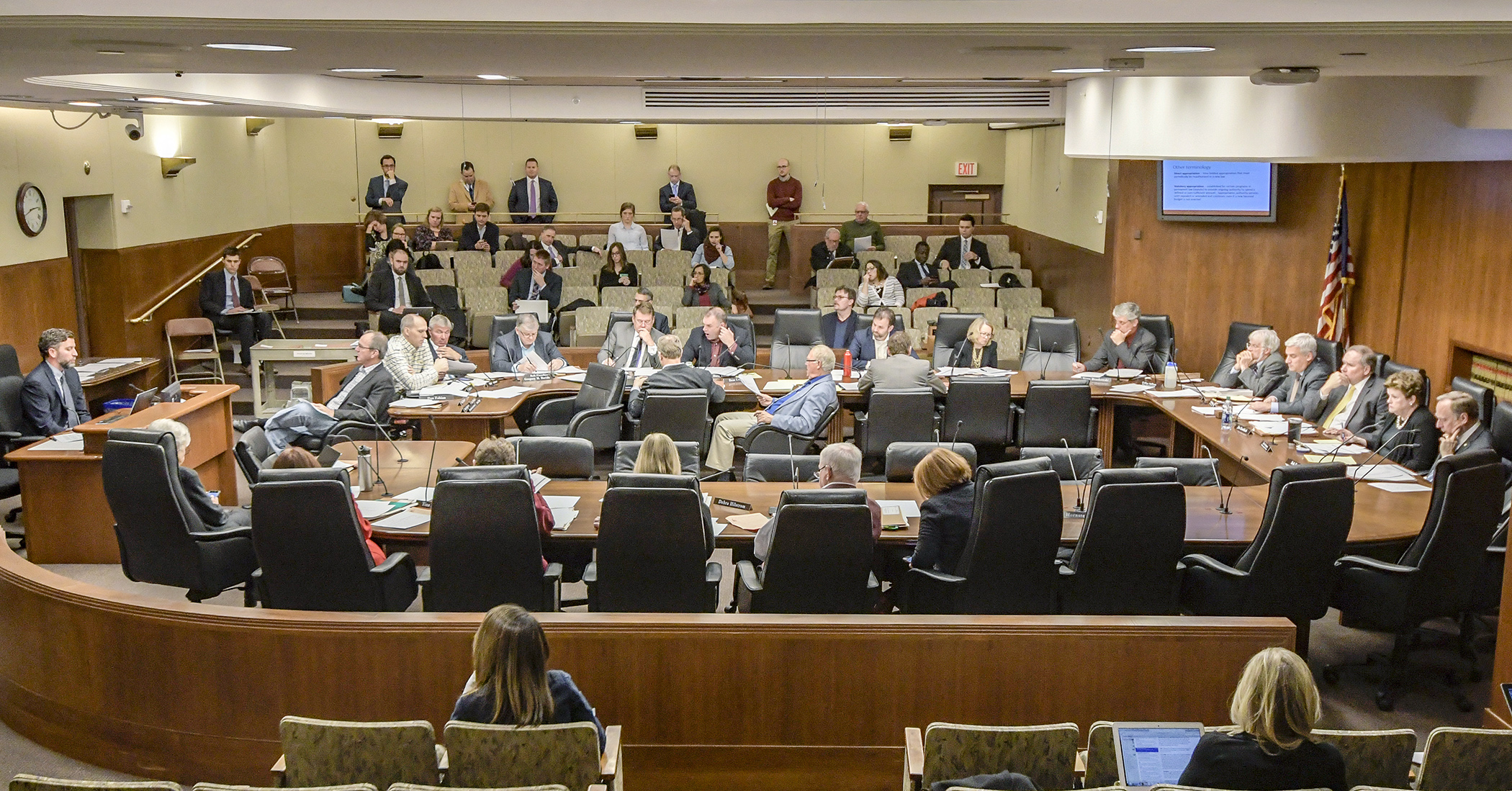House panel considers measure to fund government in case of future shutdowns

A House committee on Thursday considered legislation that could help state government avoid a shutdown in the event of future budget showdowns.
Lawmakers last year were forced to scramble to keep the House and Senate funded into 2018 after Gov. Mark Dayton and legislative leaders went to court over his line-item veto of the Legislature’s two-year budget.
A proposal sponsored by Rep. Randy Jessup (R-Shoreview) and heard Thursday in the House Ways and Means Committee would provide continuing appropriations for core government agencies like the judiciary, an executive agency, or legislative body at 90 percent of its base budget if operating funding isn’t appropriated by July 1 of an odd-numbered year.
“We want something in place in case the Legislature and governor can’t meet their biennial deadline,” Jessup said.
Only two states — Wisconsin and Rhode Island — have continuing funding resolution statutes in place, according to the nonpartisan House Research Department.
Thursday’s hearing was informational only; no action was taken on the proposal. Rep. Jim Knoblach (R-St. Cloud), the committee chair, said the proposal is not a priority for the upcoming session and that he “is not looking to act on it this year.”
WATCH Rep. Jessup describes his bill before the House Ways and Means Committee
Legislators are expected to pass a bill early in the coming session to fund the House and Senate for the remainder of the current biennium.
Both the House and Senate flirted with being forced to shutter in the face of the funding dispute with Dayton that dragged all the way to the state’s Supreme Court last fall. That showdown had left the Legislature without its 2018-19 funding at the start of the fiscal year.
Allowing continuing resolutions to keep state government funded at a base level — similar to actions taken by the federal government — could make it more difficult for lawmakers to reach agreement on two-year budgets, Knoblach warned.
“If we were to go forward and do something we have to be careful not to put a law in place that makes it easier to not reach a deal,” he said.
Minnesota Management and Budget Commissioner Myron Frans voiced similar concerns, saying continuing resolutions would allow legislators and the executive branch to “kick the can down the road” and would make large parts of state government “really, extremely difficult to run.”
“The people of Minnesota expect us to pass a biennial budget on time,” Frans said.
Related Articles
Search Session Daily
Advanced Search OptionsPriority Dailies
Legislative leaders set 2026 committee deadlines
By Lisa Kaczke Legislative leaders on Tuesday officially set the timeline for getting bills through the committee process during the upcoming 2026 session.
Here are the three deadlines for...
Legislative leaders on Tuesday officially set the timeline for getting bills through the committee process during the upcoming 2026 session.
Here are the three deadlines for...